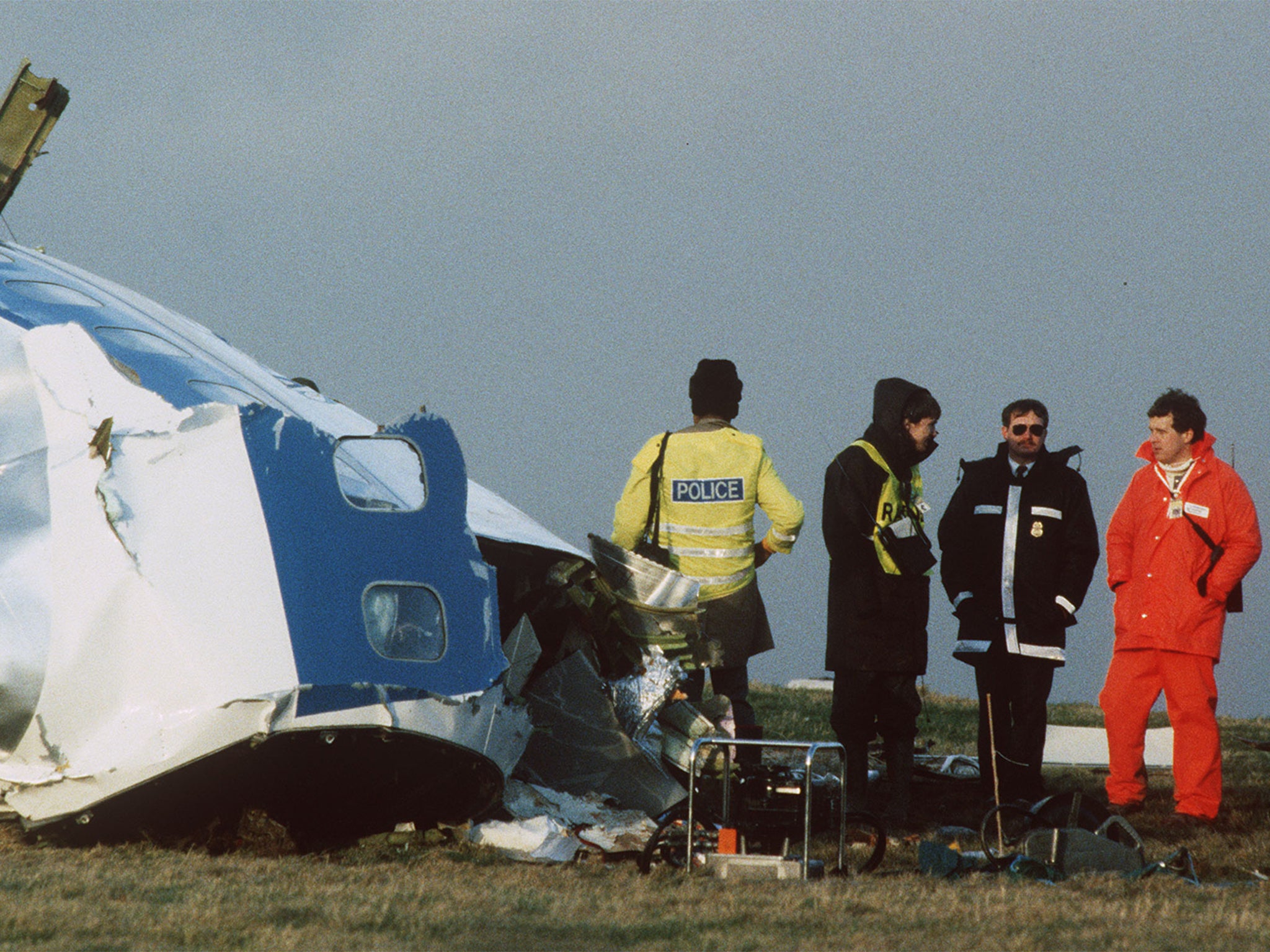Lockerbie bombing: Colonel Gaddafi’s former spy chief was 'up to his neck' in the atrocity
Scottish and US investigators are facing calls to pursue Moussa Koussa over evidence given in a parliamentary inquiry

Scottish and US investigators are facing calls to pursue Colonel Gaddafi’s former spy chief Moussa Koussa over claims that he was “up to his neck in Lockerbie”.
During the fall of the Gaddafi regime in 2011, Mr Koussa, then Libya’s Foreign Minister, unexpectedly flew to London. After three days he was allowed to fly to Qatar – to the fury of Lockerbie campaigners who believe he may have deep knowledge of the bomb plot.On Thursday, Scottish prosecutors in effect re-opened the investigation into Lockerbie by identifying two Libyans as suspects in the investigation. The pair – understood to be Abu Agila Mas’ud and Abdullah al-Senussi – are suspected of involvement along with Abdelbaset al-Megrahi, the only person convicted over the 1988 atrocity in which 270 people died.
Campaigners have urged investigators to exploit this opportunity to re-interview Mr Koussa about his knowledge of the bomb attack. Andrew MacKinlay, a former Labour MP and member of the Foreign Affairs Select Committee, who met Mr Koussa in Tripoli when he headed Libyan intelligence, said it was a “breath-taking and deeply suspicious decision” by the coalition government to give one of Gaddafi’s closest advisers a fast-tracked passage to Qatar in 2011. Mr Koussa is thought to still live in Qatar.
Mr MacKinlay claimed in evidence to a parliamentary inquiry that during the meeting in Tripoli in 2005, Anthony Layden, then UK ambassador in Libya, had pointed to Mr Koussa and warned: “This man is up to his neck in Lockerbie”.
Mr MacKinlay said it was critical for the US-Scottish joint investigation into Lockerbie to find out exactly what Mr Koussa knew.
Scottish police were granted a brief interview with Mr Koussa during the 2011 stop-off. At the time, the Libyan authorities said he knew nothing of the bombing.
The renewed focus on Libyan intelligence’s alleged involvement in the downing of Pan Am Flight 103 in December 1988 follows the announcement this week by Scottish and US legal authorities. Letters from London and Washington have been sent to Tripoli requesting investigators be given access to the two new suspects.
A recent US TV documentary by Ken Dornstein – whose brother David was aboard Flight 103 – alleges that Abdullah al-Senussi, Gaddaffi’s brother-in-law and a senior official in Libyan intelligence, was also involved in the Lockerbie operation.
The other man named in the Dornstein probe is Abu Agila Mas’ud, a technician with high-level bomb-making skills. He was recently jailed for 10 years on bombing charges connected to the political struggle following the fall of the Gaddafi regime.
Mr MacKinlay said the families of victims had a right to know if successive UK governments made deals with Gaddafi.
He said “I believe this man [Koussa] knew too much and that is why the UK authorities let him quickly leave our jurisdiction in 2011.”
Prior to a diplomatic agreement in 2004 between Muammar Gaddafi and Tony Blair, which ended sanctions against Libya and delivered billion-dollar contracts for Western oil companies, a series of covert meetings paved the way to bring Libya in from the cold.
One of the meetings, in 2003 at the elite Travellers Club in Pall Mall, London, was attended by Mr Koussa, two other Libyan intelligence officials and Mr Blair’s then foreign affairs envoy, Sir Nigel Sheinwald. At that time, Mr Koussa was banned from entering the UK because of his alleged involvement in plans to kill Libyan dissidents living abroad.
The FCO have been contacted and asked to comment. No reply was received.
Megrahi, who was released from jail by the Scottish Government in 2009 on compassionate grounds after being diagnosed with prostate cancer, died in 2012 protesting his innocence.
Q&A: Will Scottish and US investigators be allowed to question the two men?
Q. Does the identification of two Libyan suspects in the hunt for those responsible for the Lockerbie bombing mean Scottish authorities think they got it wrong in convicting al-Megrahi?
A. No, absolutely not. Evidence against Megrahi has being criticised as having holes all over the place. But the Lord Advocates’ office insist the identification of further “suspects” [not yet named] is in line with the indictment which stated “Megrahi and others.”
Q. Will Scottish and US investigators be allowed to question the two men?
A. There are two competing governments in Libya – and nothing is simple there post-Gaddafi. But letters requesting access have been sent to Libya.
Q. Is it now clear that Libyan intelligence are the masterminds then?
A. That depends. In the weeks after the bombing, terrorist cells in Palestine, Syria, Jordan and Iran were all in the frame. One Palestinian group (the PLFP-GC) was the frontrunner. Libya have always been regarded as potential paymasters. But the handing over of Megrahi by Gaddafi was seen as economically pragmatic, rather than an official admission of guilt.
Q. So will we see another Lockerbie trial?
A. The two suspect face other charges inside Libya . Scotland and the US may need to wait in line.
Bookmark popover
Removed from bookmarks